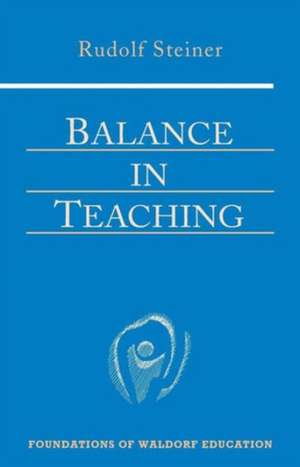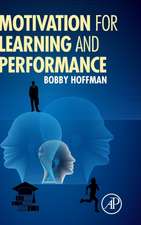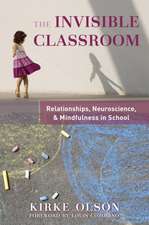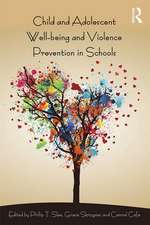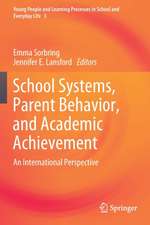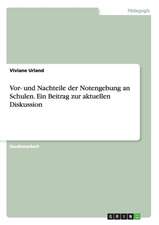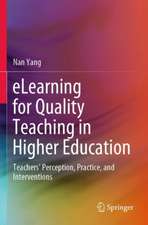Balance in Teaching: Foundations of Waldorf Education, cartea 11
Autor Rudolf Steiner Traducere de R. Queridoen Limba Engleză Paperback – 23 oct 2007
It s impossible for true teaching to be boring, declares Steiner, and he offers several examples of how teachers can observe a natural phenomenon so intimately that its creative life can flow into the children through a teacher s own words in the classroom. He also describes, in spiritual scientific depth, how the actions of teachers directly affect the physiological chemistry of their students. From this perspective, education is really therapy, transformed to a higher level, and should be seen as closely related to the healing arts. Steiner also shows how the perception of hidden relationships between education and the processes of human development can kindle a heartfelt enthusiasm and a sense of responsibility in teachers for the far-reaching health effects that educational activities can produce.
German source: "Erziehung und Unterricht aus Menschenerkenntnis" (GA 302a). Previously in English as two volumes: "Balance in Teaching" and "Deeper Insights into Education.""
Preț: 100.32 lei
Nou
Puncte Express: 150
Preț estimativ în valută:
19.20€ • 20.04$ • 15.89£
19.20€ • 20.04$ • 15.89£
Carte disponibilă
Livrare economică 15-29 martie
Livrare express 01-07 martie pentru 32.11 lei
Preluare comenzi: 021 569.72.76
Specificații
ISBN-13: 9780880105514
ISBN-10: 0880105518
Pagini: 116
Ilustrații: Illustrations
Dimensiuni: 141 x 215 x 10 mm
Greutate: 0.21 kg
Editura: Steiner Books
Seria Foundations of Waldorf Education
ISBN-10: 0880105518
Pagini: 116
Ilustrații: Illustrations
Dimensiuni: 141 x 215 x 10 mm
Greutate: 0.21 kg
Editura: Steiner Books
Seria Foundations of Waldorf Education
Notă biografică
Rudolf Steiner (1861-1925) was born in the small village of Kraljevec, Austro-Hungarian Empire (now in Croatia), where he grew up. As a young man, he lived in Weimar and Berlin, where he became a well-published scientific, literary, and philosophical scholar, known especially for his work with Goethe's scientific writings. At the beginning of the twentieth century, he began to develop his early philosophical principles into an approach to systematic research into psychological and spiritual phenomena. Formally beginning his spiritual teaching career under the auspices of the Theosophical Society, Steiner came to use the term Anthroposophy (and spiritual science) for his philosophy, spiritual research, and findings. The influence of Steiner's multifaceted genius has led to innovative and holistic approaches in medicine, various therapies, philosophy, religious renewal, Waldorf education, education for special needs, threefold economics, biodynamic agriculture, Goethean science, architecture, and the arts of drama, speech, and eurythmy. In 1924, Rudolf Steiner founded the General Anthroposophical Society, which today has branches throughout the world. He died in Dornach, Switzerland.
